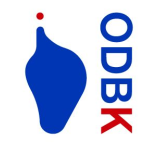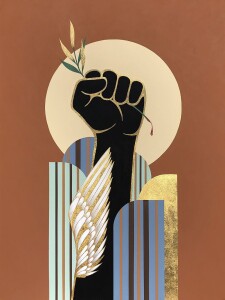By Alejandra Mantilla
 The intersection between politics and art has long been a place of debate. Today these questions take on a particularly important role, as activism in and around museums and galleries seem to be growing. In the wake of recent Black Lives Matter protests a number of exhibitions have been cancelled. For some this is a sign of awareness, for others it is a form of self-censorship.
The intersection between politics and art has long been a place of debate. Today these questions take on a particularly important role, as activism in and around museums and galleries seem to be growing. In the wake of recent Black Lives Matter protests a number of exhibitions have been cancelled. For some this is a sign of awareness, for others it is a form of self-censorship.
The questions concerning ethics and art have never been easy and will always be dealt with, with viewpoints and opinions that are both nuanced and differentiated. However, beyond ethical assessments concerning the work of individual artists, it is worth looking at the bigger problem. That is a lack of credibility of cultural institutions when it comes to dealing with topics of racism and social injustice. When museum boards don’t have the diversity nor the tools to bring these discussions to the communities, there is a lack of trust in the real motivations behind these exhibitions and in the way these sensitive topics are handled. As a study done by Williams College on the major 18 US museums found out, 85 percent of artists in these collections are white and 87 percent are male.
It is because of this, that the new alliance of black trustees can be very helpful in making a change. Black trustees in museums have, more often than not, been the only representatives of black people in their respective boards. Now they have decided to come together and form an alliance that can take action to create internal changes. This can be a great way to change what was often a tokenistic representation of people of color into a motor of real structural change. Hopefully this alliance can extend their work to bring diversity in the representation of different underrepresented minorities to boards, curators, and artists.
Since 2017 in ODBK we are procuring models to create equality and diversity for the art world. But we need your participation to succeed our aim and goals, join ODBK! www.odbk.tk

